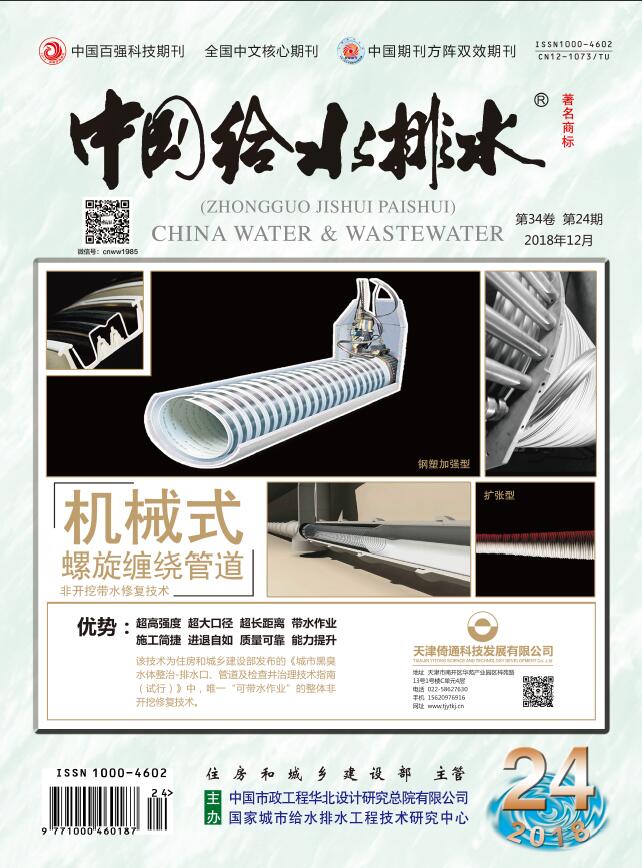GAOJing-yu,CAIWu,LIANGHao,et al.Removal of Disinfection Byproducts and Antibiotic Resistance Genes in Drinking Water by Biological Filter Media[J].China Water & Wastewater,2024,40(19):31-38.
Removal of Disinfection Byproducts and Antibiotic Resistance Genes in Drinking Water by Biological Filter Media
China Water & Wastewater[ISSN:1000-4062/CN:12-1073/TU]
volume:
第40卷
Number:
第19期
Page:
31-38
Column:
Date of publication:
2024-10-01
- Keywords:
- drinking water advanced treatment; biological filter media; disinfection byproducts; antibiotic resistance genes; extracellular polymeric substance
- Abstract:
- To enhance the removal of composite micro-pollutants in water, modified coconut shell activated carbon (CAC) and catalyst filler (HCLL-S8-M) were prepared, and their removal effects and mechanisms on nitrogenous disinfection byproducts formation potential (N-DBPsFP) and antibiotic resistance genes (ARGs) were investigated. The results showed that the total formation potential of haloacetonitriles and halonitromethanes in the modified CAC and HCLL-S8-M effluent were 385.15 ng/L and 464.18 ng/L, which were 212.74 ng/L and 133.71 ng/L lower than that in influent. The relative abundance of ARGs in the influent, modified CAC and HCLL-S8-M effluent were 4.35%, 1.91% and 2.88% under the same complex micro-pollutants conditions (1 -g/L for parathion-methyl and 2,4-dichlorophenoxyacetic acid). Modified CAC and HCLL-S8-M could remove DOC including complex micro-pollutants. Microorganisms secreted less EPS, and those capable of degrading organic matter became dominant in effluent. Modified CAC and HCLL-S8-M reduced the production of DBPs precursors and proliferation of ARGs and helped to control indirect drinking water quality risks due to the stressful effects of micro-pollutants.
Last Update:
2024-10-01

